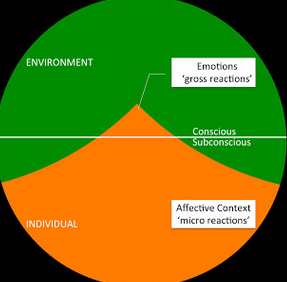
How we learn once more
Editor’s note: Nick Shackleton-Jones on the Affective Context Model – and how we ‘encode’ reactions that then shape our learning.

Editor’s note: Nick Shackleton-Jones on the Affective Context Model – and how we ‘encode’ reactions that then shape our learning.

Editor’s note: A simple, powerful point from Dan Roddy about thinking differently as an L&D professional.

Editor’s note: Donald Clark looks at how VR will potentially help transform learning experiences (especially now the headsets will come with virtual hands).

Editor’s note: The new tool will give the company a way to show the best of Twitter to both logged-in and logged-out users on a variety of platforms. It will have instantly loading videos and rich images, and will occupy a front-and-center location in an upcoming version of the Twitter app.

Editor’s note: Steve Rosenbaum, author of Curate This!, argues that Twitter’s real value in the future will be to enable users to curate content.

Editor’s note: A great analysis of Twitter’s development so far and why curation has to be a part of its future development.

Editor’s note: Twitter sees curation as an important part of its development which explains the launch of its Curator tool.

Editor’s note: Flipboard enables users to create their own curated magazines. it’s a great tool and it just got a bit more useful as it now enables users to add voiceovers to their magazines as well as their own images.

Editor’s note: Following on from the opening keynote on play at this week’s Learning and Skills Group summer forum we look at the research of Stuart Brown who has been studying play for years.
Editor’s note: This is a great conversation between Andrew Jacobs at Lewisham Council and Nigel Paine on the role of L&D and strategy.
Editor’s note: Do you think email will be dead in the near future? If you do, this short post provides the counterpoint.

Editor’s note: The games developer conference of the year has just taken place. This article provides all the insights.

Editor’s note: The Carnegie Mellon University stat here is very interesting. If knowledge workers can retain just 8% of information when doing their job what are the implications for how, where and when learning content is delivered?

Editor’s note: This is our review of the CIPD L&D Show which appeared on Personnel Today. The conference was very case study driven but hopefully this will give a sense of some of the talking points.

Editor’s note: We know why organisations like hot desking; it saves money. But is it good for us humans? This interactive piece from the BBC shares some interesting stats on the impact of hot desking.
